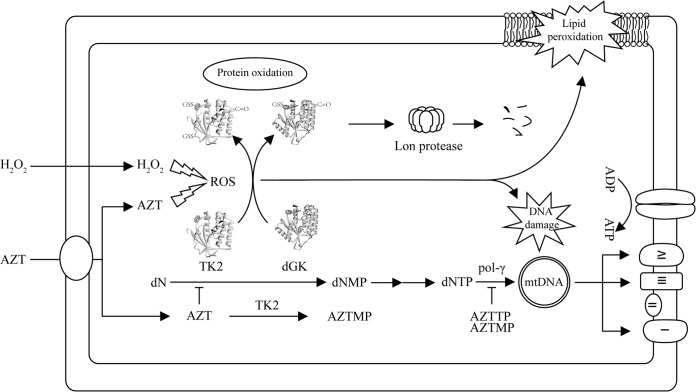FIG 7.
Illustration of the consequences of AZT- or H2O2-induced oxidative damage. H2O2 or AZT treatment increases cellular and mitochondrial ROS levels and oxidative modifications and damage of mitochondrial proteins, lipids, and mtDNA. Oxidative modifications of TK2 and dGK lead to proteolytic degradation, e.g., downregulation. Deficiencies in TK2 or dGK result in imbalanced mitochondrial dNTP pools and eventually mtDNA depletion. Upon entering mitochondria, AZT can also inhibit TK2 activity, leading to imbalanced dTTP and dCTP pools that stall mtDNA synthesis. mtDNA depletion, in turn, leads to decreased synthesis and abundance of mtDNA-encoded proteins that are essential components of the mitochondrial electron transport chain complexes, thus producing mitochondrial dysfunction. dN, deoxynucleoside; dNMP, deoxynucleoside monophosphate; AZTMP, AZT monophosphate; AZTTP, AZT triphosphate; pol-γ, polymerase γ.

